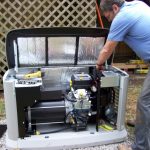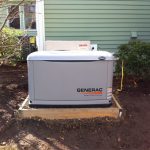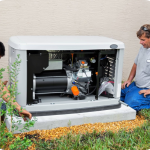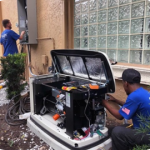Generators are essential when the power goes out. But like any other machine, they need regular maintenance to stay in good working order. Neglecting routine checks can lead to breakdowns and costly repairs. Here are the top signs your generator might need a tune-up or repair, along with a look at what repairs could cost and when to consider replacement.
Why Regular Generator Maintenance Matters
Generators work hard, especially in emergencies. Regular maintenance ensures they start smoothly when you need them most, provide steady power, and don’t waste fuel. By keeping up with tune-ups, you reduce the risk of unexpected breakdowns and extend the generator’s lifespan. Plus, proper care can prevent safety issues, like fuel leaks or exhaust hazards.

Common Warning Signs Your Generator Needs Attention
Knowing the warning signs of a struggling generator helps you fix small issues before they become big problems. Here’s what to watch out for:
1. Strange Noises or Vibrations
Unusual sounds, like grinding, knocking, or rattling, often point to mechanical issues or loose parts. A generator should run smoothly without excessive noise. Loud noises could mean something inside is wearing out, or a part is loose and needs immediate attention.
2. Difficulty Starting Up or Failing to Start
If your generator takes several tries to start or doesn’t start at all, there’s likely a problem with the battery, fuel system, or starter motor. Batteries lose charge over time, and fuel can get stale if not used regularly. A professional inspection can pinpoint and fix these issues.
3. Fluctuating Power Output
A generator’s job is to provide steady power. If you notice flickering lights or appliances running at varying speeds, the generator might not be delivering consistent power. This issue could signal problems with the alternator or voltage regulator. Consistent power is important to protect your devices from damage.
4. Excessive Fuel Consumption
If your generator is burning more fuel than usual, it’s a sign something isn’t right. Increased fuel use often indicates that the generator is running inefficiently. Possible reasons include dirty filters, clogged fuel lines, or issues with the fuel injector. An inefficient generator costs more to run and adds unnecessary wear and tear.
Maintenance Checklist: When to Schedule Tune-Ups and Repairs

Regular maintenance is the key to keeping your generator in top shape. Here’s a simple schedule to follow:
Monthly and Quarterly Maintenance Tasks
Once a month or every three months, check basic parts like the oil level and air filter. Replace or clean them as needed. Look over the generator for any signs of wear or leaks. Regular checks prevent minor issues from becoming major problems.
Annual Tune-Up Requirements
A professional tune-up once a year is recommended for most generators. During an annual service, a technician inspects all components, cleans parts, changes the oil, and tests the power output. This yearly tune-up keeps the generator ready for reliable performance.
Cost Factors for Generator Repairs and Maintenance
Understanding potential repair costs helps you plan for expenses and make cost-effective decisions.
What Affects the Cost of Generator Repairs?
Repair costs depend on the type of problem, labor rates, and the parts needed. Simple fixes, like filter replacements or tightening loose bolts, cost less. Major repairs, such as replacing the alternator or fuel system components, are pricier due to labor and specialized parts.
Typical Costs for Common Repairs
Here’s a general idea of what common generator repairs might cost:
- Battery replacement: Around $100 to $200
- Fuel system cleaning: Roughly $150 to $300
- Oil and filter changes: Between $50 and $100
- Alternator repair: $400 to $700
These prices can vary by generator size and location, so check with a local technician for precise estimates.
Comparing DIY Maintenance vs. Professional Service Costs

Routine checks, like topping off the oil and replacing filters, can be done at home, saving on service costs. However, for in-depth maintenance and repairs, hiring a professional is safer and more reliable. Professional service can catch problems early, potentially saving money on major repairs.
When Is It Time to Replace Rather Than Repair?
At a certain point, it might make more sense to replace an old generator rather than repair it.
Weighing the Costs: Repair vs. Replacement
If repair costs add up to more than half the cost of a new generator, it’s often better to replace it. Frequent repairs, outdated technology, and limited warranty coverage are also reasons to consider replacement. A new generator might have better fuel efficiency and warranty options, making it a more cost-effective choice over time.
Key Indicators Replacement Is More Beneficial
Generators typically last 10 to 15 years with regular maintenance. If your generator is near this age and requires frequent repairs, replacement might be the best option. Modern generators are also more efficient and quieter, offering improved performance for the same or lower operating costs.
Frequently Asked Questions on Generator Maintenance and Repairs
Here are a few common questions people have about generator maintenance and repairs:
- How Often Should I Schedule Generator Maintenance?
Basic maintenance should be done monthly, with a professional tune-up recommended annually. - What Are the Typical Lifespan and Expected Repair Costs?
Generators last 10 to 15 years on average. Minor repairs cost around $100 to $300, while major repairs can reach $500 or more. - Are There Any Maintenance Tasks I Can Do Myself?
Yes, simple tasks like checking the oil, replacing the air filter, and inspecting for leaks can be done at home. For complex issues, professional help is best.
Conclusion: The Value of Proactive Generator Care
Staying alert to warning signs and following a regular maintenance schedule can help you avoid costly breakdowns. By addressing minor issues early and sticking to routine tune-ups, you ensure your generator is ready to keep your home or business powered up when it matters most. Taking care of your generator not only saves money on repairs but also extends its useful life, giving you peace of mind during any power outage.









